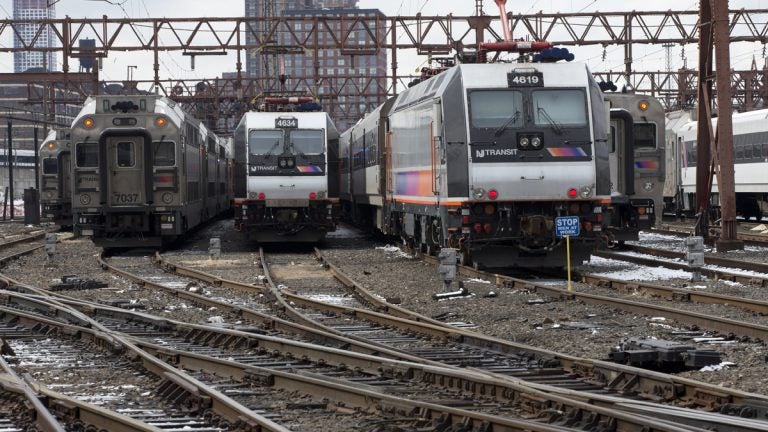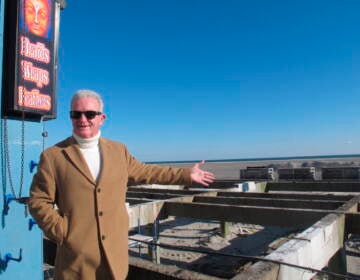After Hoboken train crash, transit regulators targeting sleep apnea

New Jersey Transit trains at the Hoboken terminal. (AP Photo/Mary Altaffer)
Federal regulators want railroads across the country to test train operators for sleep apnea.
The safety advisory being issued this week by the Federal Railroad Administration comes after the engineer in September’s deadly New Jersey commuter train crash was found to have the fatigue-inducing sleep apnea.
FRA Administrator Sarah Feinberg tells The Associated Press that the safety advisory will stress the importance of sleep apnea screening and treatment.
The advisory is akin to a strong recommendation and is a stopgap measure while regulators draft rules to require railroads to screen engineers.
The attorney for the NJ Transit engineer whose train slammed into Hoboken Terminal at double the 10 mph speed limit says he was diagnosed after the crash that killed one woman standing on a platform.
Major Signs and Symptoms
One of the most common signs of obstructive sleep apnea is loud and chronic (ongoing) snoring. Pauses may occur in the snoring. Choking or gasping may follow the pauses, according to National Institutes of Health.
The snoring usually is loudest when you sleep on your back; it might be less noisy when you turn on your side. You might not snore every night. Over time, however, the snoring can happen more often and get louder.
You’re asleep when the snoring or gasping happens. You likely won’t know that you’re having problems breathing or be able to judge how severe the problem is. A family member or bed partner often will notice these problems before you do.
WHYY is your source for fact-based, in-depth journalism and information. As a nonprofit organization, we rely on financial support from readers like you. Please give today.




